2024 Virginia General Assembly
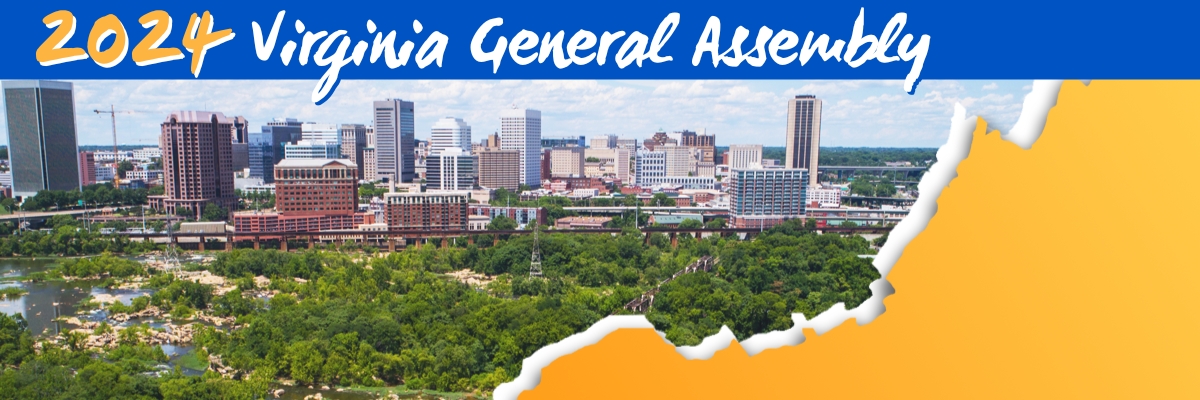
The Virginia General Assembly wrapped up its 2024 legislative session on March 9. This year saw some substantial gains for Virginia communities, and we couldn’t have done it without our supporters!
We worked on several priorities that are detailed below, but at the end of the session, lawmakers approved these measures that are awaiting the governor’s signature:
- Protections from utility shutoffs during extreme weather and times of emergency
- A prohibition on the use of cyanide in large-scale metal mining operations
- Establishing a shared solar program for Appalachian Power Company territory
- Expanding the shared solar program for Dominion Energy territory
We are also pleased that Virginia lawmakers protected the 2020 Virginia Clean Economy Act by defeating measures that would have repealed important provisions of the landmark clean energy legislation.
Our business isn’t finished, however. We’re waiting to see what Gov. Glenn Youngkin will do with bills that would place all of the financial risk of developing new nuclear power plants on customers of Dominion Energy and Appalachian Power. Be on the lookout for a wrap-up blog to get the last word on the 2024 General Assembly!
2024 session
January 10 – March 9
** Official General Assembly website **
Issues We Tracked
— Climate Change
— Metals Mining
— Pipelines
— Solar Energy
— Utility Shutoffs
— Energy Affordability
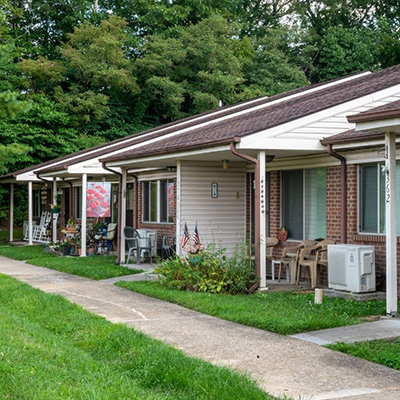
Making Energy More Affordable
Last year, consumer advocates achieved historic success, as the General Assembly passed – and Governor Youngkin signed – legislation restoring significant oversight over Virginia’s investor-owned monopoly electric utilities, Appalachian Power Co. and Dominion Energy. For years, these companies convinced state legislators to allow them to write their own rules. As a result, Virginians were legally overcharged by billions of dollars over the past two decades.
Fortunately, last year’s reforms will make a real difference. But in the face of the climate crisis and recent inflation across the entire economy, our work is not done. We believe further changes to the way we regulate electric utilities can help lower the cost of the clean energy transition in the long run. That’s why we support studying alternative regulatory models that help align utilities’ incentives with the public interest. We also support policies that unlock competition in energy generation and policies that enable more people to own energy resources.
BILLS TO WATCH
- OPPOSE: — SB 454: This bill would allow Dominion and Appalachian Power to start charging customers for licensing and early-stage development of speculative nuclear projects called small modular reactors, or SMRs, before either company even applies for permission to build one. No one has ever succeeded in completing an SMR project to serve the electric grid, and these early costs alone are likely to cost billions. Sadly, customers in South Carolina had to pay $2.9 billion for a failed nuclear project just a few years ago. If the General Assembly passes this bill, Virginia risks the same result.
- Update: SB 454 advanced from the House of Delegates in a 52-44-1 vote on March 6th with amendments.
- SUPPORT – HB 638 / SB 230: Known as the ARC Act (Affordable, Reliable, Competitive), these bills would ensure that, of the clean energy generation proposals put forward by Appalachian and Dominion, a minimum of 35% would be owned by third parties. The bills also help these utilities invest in more energy efficiency programs, and they require the SCC to implement the Virginia Clean Economy Act at the lowest reasonable cost. (Del. Sullivan, Sen. Hashmi)
- UPDATE: HB 638 was laid on the table in the House Labor and Commerce Committee.
- UPDATE: SB 230 was continued to 2025 in a 15-0 vote in Senate Commerce and Labor on February 5.
- UPDATE: SB 137 was continued to 2025 by the Senate Commerce and Labor Committee via a vote of 15-0.
- UPDATE: HB 190 was referred to the House Privileges and Elections Committee but never docketed.
- UPDATE: SB 326 reported from the Senate Commerce and Labor Committee 8-6 and was referred to the Senate Finance and Appropriations on February 6 but was not heard.
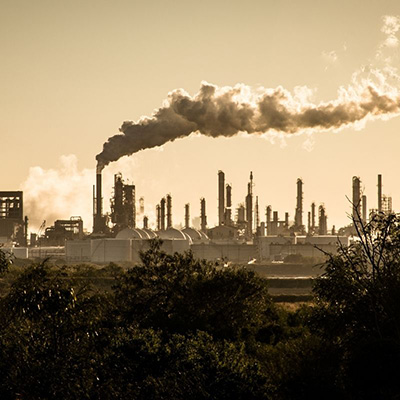
Defending Progress on Climate Change
Virginia passed major legislation to reduce carbon emissions and shift to a 100% clean energy economy in 2020 with the Virginia Clean Economy Act. However, powerful fossil fuel interest groups would like to weaken or repeal Virginia’s renewable energy standard. Help us encourage our lawmakers to stand strong and insist that fossil fuels are phased out of our power sector.
BILLS TO WATCH
- OPPOSE – HB 397: This bill would repeal several VCEA provisions — including those requiring the State Air Pollution Control Board to adopt regulations to reduce carbon emissions from electrical generation and set up and manage the carbon allowance and auction system. It would also rescind the General Assembly’s declaration under the VCEA that wind, solar and battery storage facilities are in the public interest, effectively sending the signal to state agencies, such as the SCC, that these should no longer be policy priorities. (Del. Griffin)
- UPDATE: HB 397 was laid on the table in a 3-1 vote and defeated for 2024 on February 8!
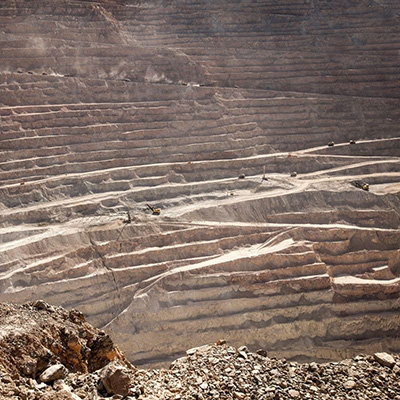
Protecting Water Quality from Metal Mining
Drinking water resources are imperiled for many communities across the commonwealth, and a new extractive industry — large-scale metal mining — is trying to move forward without a comprehensive regulatory framework to protect water supplies and nearby residents. The toxic materials needed for this industry include cyanide, and they put public health and the environment at risk. Additionally, communities aren’t told when exploratory drilling is occuring. This session, Del. Shelly Simonds has introduced two bills: HB84 to create public notification requirements for exploratory drilling and HB85 to prohibit the use of cyanide in the metal mining process.
BILLS TO WATCH
- SUPPORT – HB 84: Creates public notification requirements prior to exploratory drilling for metal mining. (Del. Simonds)
- UPDATE: HB 84 was defeated in the Senate Agriculture, Conservation and Natural Resources Committee via a vote of 10-5.
- SUPPORT – HB 85: Prohibits the use of cyanide in mineral mining and processing. (Del. Simonds)
- UPDATE: HB 85 Thank you for your help — it has unanimously passed both the House of Delegates and the Senate and now goes to the Governor!
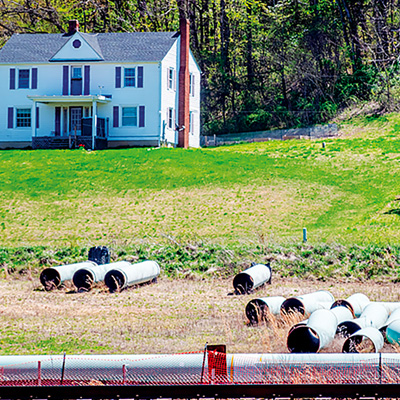
Strengthening Pipeline Review
For years, Virginia has seen the impacts of insufficient review of fracked-gas pipelines with the construction of the disastrous Mountain Valley Pipeline. Although permitting standards have been improved over the past few years, those standards only apply to gas pipelines larger than 36 inches in diameter. This year, we are supporting HB 524, which applies this more stringent environmental review to interstate gas pipelines 24 inches and larger in diameter.
BILLS TO WATCH
- SUPPORT – HB 524: Requires applicants for natural gas transmission pipelines with an inside diameter of at least 24 inches to submit a separate application, erosion and sediment control plan, and stormwater management plan to the Department of Environmental Quality concurrently with a Joint Permit Application. (Del. Laufer)
- UPDATE: HB 524 continued to 2025, via a voice vote of the House ACNR Chesapeake Subcommittee on Monday, January 29.
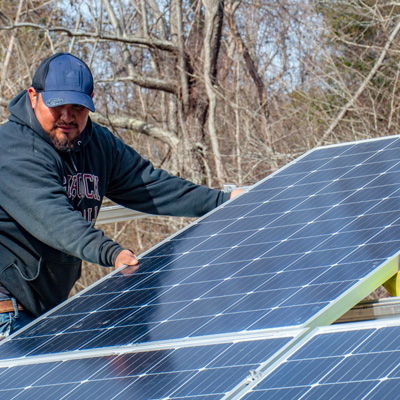
Expanding Access to Solar Energy
This session, we are working to expand access to shared solar (also known as community solar) across the state and promote development of solar energy on brownfields and former coal mine land. Del. Rip Sullivan and Sen. Scott Surovell are sponsoring bills to fix and expand Virginia’s shared solar program. Sen. Travis Hackworth is sponsoring a bill to fix the Virginia Brownfield and Coal Mine Renewable Energy Grant Fund and Program, while Sen. Creigh Deeds and Del. Terry Kilgore are seeking $20 million for the fund to help prioritize siting solar on these former industrial lands first.
BILLS TO WATCH
- SUPPORT – HB 199 / SB 25: Removes a restriction on allocation of state funds to the Virginia Brownfield and Coal Mine Renewable Energy Grant Fund and Program. This would allow the grant fund to be funded through a number of mechanisms including state funding and grants, greatly increasing what is available for solar energy development on these sites. (Del. Krizek, Sen. Hackworth)
- UPDATE: HB 199 reported from the Senate in a unanimous 40-0 vote on March 1st.
- UPDATE: SB 25 passed the Senate on January 29 and the House via a vote of 93-6 on February 19! This bill will now go to the Governor to sign.
- UPDATE: Unfortunately the $20 million requested by Del. Kilgore and Sen. Deeds to fund the Virginia Brownfield and Coal Mine Renewable Energy Grant Fund were not included in either the House or Senate versions of the budget.
- SUPPORT – HB 106 / SB 253: These bills would expand the shared solar program in Dominion territory and fix billing and customer classifications, allowing more people and businesses to take advantage of the program. (Del. Sullivan, Sen. Surovell)
- UPDATE: HB 106 advanced through the House 54-44 and the full Senate 22-17 on February 29th and will now go to the Governor!
- UPDATE: SB 253 passed the full Senate on February 13th and the House of Delegates on February 23rd in a 51-47 vote!
- SUPPORT – HB 108 / SB 255: SUPPORT: These bills would establish a shared solar program in Appalachian Power territory. (Del. Sullivan, Sen. Surovell)
- UPDATE: HB 108 passed the full House in a 55-44 vote on February 13th and the Senate 22-17 on February 29th!
- UPDATE: SB 255 reported from the Senate on February 13th and passed the House 52-46 on February 23rd!

Protecting Against Utility Shutoffs
Recent high energy prices and economic inflation have placed low-income Virginians at risk of losing access to vital services such as electricity, heat and water when they can’t afford to pay their bills. We are working with our partners to pass laws that will prohibit utility shutoffs during a state of emergency, during dangerously hot and cold weather, and on Fridays or legal holidays that would result in an extended disconnection, in accordance with recommendations from state utility regulators at the State Corporation Commission. This effort builds on legislation introduced by Del. Irene Shin in 2022.
BILLS TO WATCH
- SUPPORT – HB 906 / SB 480: These bills would prevent electric, gas, water and wastewater utilities from disconnecting services during a state of emergency, when temperatures are forecast to be below 32 F or with a heat index of 92 F or higher, or on Fridays or the day prior to a holiday. (Del. Shin, Sen. Aird)
- UPDATE: HB 906 reported from the Senate in a strong bipartisan vote of 38-2 on March 1st.
- UPDATE: SB 480 cleared the House of Delegates 77-21 on February 23rd!
